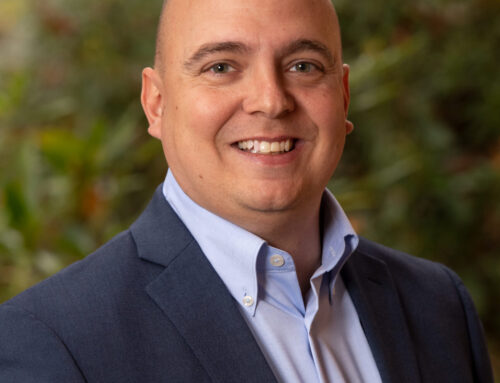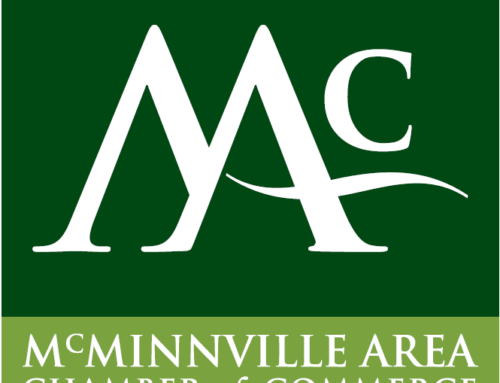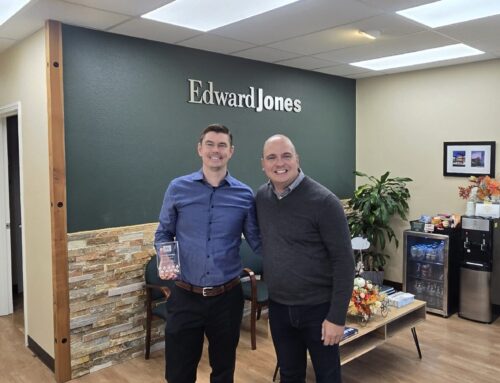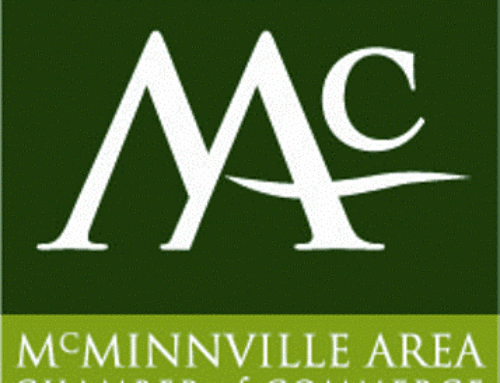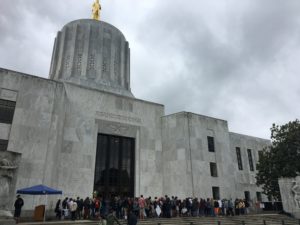
From Monday November 18th through Wednesday November 20th, Oregon State Representatives and Senators convened in Salem for a series of regularly scheduled informational hearings and workgroup meetings known as “Legislative Days”. There will be one more three-day set of interim hearings in January before the 2020 Legislative Session begins on February 3.
Big policy ideas being discussed over the next three days include:
- Statewide regulation of vaping products,
- Creating a Long-Term Rental Voucher Program,
- Regulation of Transportation Network Companies (TNCs – e.g. Lyft and Uber),
- Improving mental health access and services in Oregon,
- Regulating the Franchisor/Franchisee Relationship,
- Access to capital for small and medium-sized Oregon businesses,
- The I-5 Bridge Replacement, and
- The reopening of the Willamette Falls Locks.
One of the more interesting concepts heard today came from Chair of the House Interim Committee on Human Services and Housing, Rep. Alissa Keny-Guyer (D – Portland). The Representative referenced the upcoming decrease in State Transient Lodging Taxes (TLTs) from 1.8% to 1.5% as a possible funding source for a State-Run Long-Term Rental Voucher Program. This is likely to become a bill in the upcoming session: the sunset that would have resulted in the decrease from 1.8% to 1.5% (currently set for 6/1/2020) would be extended for a period of time or eliminated completely, and that 0.3% ($5-6 million per year) would go into a new Long Term Rental Voucher Program.
The building was buzzing with whispers of cap and trade and what that policy will look like in 2020. If the Democratic majority chooses to bring it forward once again next February, there is a strong possibility that Senate Republicans will refuse to show up, denying a quorum and the ability for the Senate to conduct its business. If that happens, both sides will assuredly try to blame the other for the stalemate in pursuit of campaign material for the 2020 Primary and General elections.
The following pages contain additional details observed and overheard during November Legislative Days committee hearings. There are quotes and summaries of lawmakers’ actions that may illuminate where our State Representatives and Senators currently stand on issues such as campaign finance, health care access, the franchisor/franchisee relationship, the Corporate Activity Tax, and access to capital for small businesses.
Local Spotlight:
Yamhill County Public Health Director Silas Halloran Steiner presented to the Senate Interim Committee on Mental Health on the role of community mental health programs in Oregon’s Mental Health System. Later, Chuck Pattishall, Executive Director of Your Community Mediation of Yamhill and Tillamook Counties testified on the state of community mediation services in Oregon and the need for additional state support for the mediation model of conflict and dispute resolution.
Details from Select Committees Attended – November 18 – 20, 2019
Senate Interim Committee on Mental Health Link to Meeting (OLIS)
- Informational Meeting – Invited Testimony Only
- Mental Health and Older Adults
Summary: Presenters relayed the complexity of accessing or the complete lack of community mental health services for seniors and people experiencing disabilities. There is virtually no outreach to seniors in addiction and mental health services offered by local and statewide government entities, despite the fact that seniors take nearly one third of prescription drugs statewide. Encouraged OHA and DHS to be compelled (if necessary) to work together to develop ways to enable seniors and those experiencing disabilities to better access available services without jeopardizing the current service level.
House Committee on Business and Labor – Link to Meeting (OLIS)
- Informational Meeting – Invited Testimony Only
- Franchising in Oregon
- Richard Blackwell, Policy Manager, Division of Financial Regulation, DCBS
- Aeron Teverbaugh, Senior Policy Analyst, Division of Financial Regulation, DCBS – Topic: State regulation of franchise transactions
- Keith Miller, Franchisee Advocacy Consulting Topic – Policy issues in the franchiser/franchisee relationship
- Ruth Swain, Small Business Development Center Network Topic – Consulting services provided to potential franchisees
- Investing in Family Wage Jobs in Rural Oregon: Impact of Pendleton Unmanned Aerial Systems Test Range
- Robb Corbett, Pendleton City Manager
- Steve Chrisman, Economic Development Director and Airport Manager, City of Pendleton
- Franchising in Oregon
Summary: There were two main topics covered in this hearing: the experience of franchising in Oregon and the current state and potential of the unmanned aerial systems (UAS) industry in Pendleton and Oregon more broadly.
DCBS officials Rick Blackwell and Aeron Teverbaugh provided the Committee with an overview of how franchise law is currently structured in Oregon. Franchisors provide a detailed and long disclosure document to franchisees, the structure of which is dictated by the Federal Trade Commission (FTC). DCBS occasionally investigates complaints from Oregon franchisees against their franchisor but they haven’t had to file a complaint against a franchisor since 2012.
Keith Miller, former Subway Franchisee and current Director of Public Affairs for the American Association of Franchisees and Dealers testified to the difficulties of running a franchise in Oregon and across the country. Mr. Miller shared his understanding that a major reason that franchisee complaints against franchisors are so rare is that unwritten and unspoken threats of retaliation by the franchisor/franchise brand have a chilling effect on would-be complainers: “…filing a complaint against your franchisor is not really great for your long term health in that system…”
Mr. Miller also discussed his belief that a lack of investment protections available to franchisees is acting as a deterrent to additional investment and expansion in the industry. Personal asset guarantees imposed by franchisors in contracts and similar guarantees franchisees make to qualify for Small Business Association loans put franchisees in very precarious financial positions. When a franchisee fails, it is typically financially ruinous for that person. Franchisees are only affiliates of franchise companies and have little leverage in negotiations with the large, established brands. At the time of contract renewal, franchisers can and do change the terms of the non-negotiable yet binding agreements they make their franchisees sign. Franchisees must either commit to renewal under the new, usually less-favorable terms or walk away from their business and their investment.
Other issues advocates are concerned with in the franchisee/franchisor relationship include:
- Franchisors will choose not to put any information regarding brand financial performance in their FTC-regulated disclosure documents. This disclosure is optional under federal law.
- Franchisees are targeted by predatory loan brokers that deliberately misrepresent the facts while furnishing SBA loans and other small business loans to franchisees. Loan brokers do not fall under FTC mandatory disclosure rules.
Franchise Relationship Laws exist in 19 States. Advocates stated Oregon has no such protections for our local small business owner franchisees. “We need to ensure there is a sustainable business model that is fair to both franchisors and franchisees.” The strongest laws are in California and Washington and they contain provisions that:
- Allow for freedom of association without interference or retaliation
- Provide termination rights and a due process
- Provide reasonable transfer rights (including passing the business on to heirs)
- Provide the opportunity to monetize equity
- Address contract renewals fairness
- Address fair sourcing of goods and services (mandated suppliers exist in contracts today)
- Requires transparency in rebates, rewards programs, etc.
Next, Robb Corbett and Steve Chrisman of the City of Pendleton presented on the state of the unmanned aerial systems (UAS) industry in Pendleton and Oregon more broadly.
Mr. Chrisman advocated for Oregon to become the most UAV-friendly state in the nation – there is potential for growth in well-paying jobs for rural Oregonians. “If the State wants to capture as much of this potential job and industry growth as possible, our elected leaders will need to work with strategically picked airports and private airfields around the state to support development of additional hangar space to create spaces for UAV companies to locate and expand in Oregon.”
There is potential in rural communities (including McMinnville) for increased UAS testing and job creation. Officials from the City of Pendleton testified that there are 40+ jobs (with an average annual salary of around $60,000) available in Pendleton today in this space. Pendleton is the epicenter of testing of UAVs in Oregon, but other communities are benefiting too. McMinnville doesn’t enjoy the same weather Pendleton does, but inclement weather testing is needed, and aerospace companies may very well consider locating in cities in the rainier parts of the state. It is very much a “if you build it, they will come,” kind of industry at this point, and rural communities can position themselves to benefit from the expansion of the UAS industry by maintaining open lines of communication between local government and industry stakeholders and by developing additional industrial hangar space at municipal airports and private airfields for companies to locate or expand in.
Rep. Paul Evans (D – Monmouth) aired his concerns and his view that the “rights and responsibilities conversation” is lagging the rate of expansion of the industry. “We have to be rational about how we approach this, and if the industry wants support of the Legislature, they’ll need to push that conversation forward.”
Rep. Barreto (R – Wallowa/Cove) asked the presenters from the City of Pendleton about their issues with UGB expansion.
In the 70’s when the foundation of Oregon’s Land Use laws were enacted with Senate Bill 100, Pendleton chose a “tight” UGB and as a result of that a bulk of the Pendleton UGB is in a canyon with steep slopes and shallow soils. Because of this, builders are less likely to be attracted to Pendleton and the ongoing housing shortage in the city is now a threat to the expansion of the local economy. A Buildable Lands Inventory analysis was conducted last year, and it was determined that a 20+ year supply of land was available within city limits, making UGB expansion very hard to argue for. Mr. Corbett and Mr. Chrisman discussed how the State Land Use Board of Appeals (LUBA) will not consider geologic constraints (like those in Pendleton) in their decision-making process.
House Interim Committee on Economic Development – Link to Hearing (OLIS)
Informational Meeting – Invited Testimony Only
- Willamette Falls Locks
- Clackamas County Commissioner Martha Schrader, Co-Vice Chair, Willamette Falls Locks Commission
- Danielle Cowan, Clackamas County Tourism and Cultural Affairs; Member, Willamette Falls Locks Commission
- West Linn Mayor Russell Axelrod, Chair, Willamette Falls Locks Commission
- Representative Mark Meek, House District 40; Member, Willamette Falls Locks Commission
Summary: The reopening of the Locks will get us closer to the renewal of the Willamette as a “River Highway,” and multiple communities and industries would benefit. Reopened Locks would support port development sites upstream in Wilsonville and Newberg. Barging of aggregate goods through our region via a seamless Willamette River could reduce the number of heavy trucks on our roadways. Rep. Caddy McKeown (D – Coos Bay) referenced Congressman Peter DeFazio’s current efforts to expand access to the federal Harbor Maintenance Trust Fund and whether the Commission’s efforts to take over ownership of the Locks from the U.S. Army Corps of Engineers would preclude them from pursuing that funding. Rep. Mark Meek (D – Clackamas Co.) responded stating he expected not and hoped not, as the decision to divest from the Locks has already been made by the Corps and the Commission will continue to pursue taking over regulatory control of the Locks regardless.
- Capital Access for Small Business
- Lisa Dawson, Northeast Oregon Economic Development District
- Lynn Meyer, Community Lending Works, Springfield
- Ashley Henry, Business for a Better Portland
Summary: Mr. Meyer with Community Lending Works highlighted the challenges facing under-collateralized businesses and minority-owned businesses. Advocated for the State to create and provide a Loan Loss Guarantee Fund so lenders and re-lenders feel more secure in their decision-making when making loans traditional financial institutions wouldn’t touch.
Ms. Dawson testified to her agency’s desire to work closely with the state to increase access to capital among small and medium-sized enterprises and especially in rural Oregon. Having a new state fund that local economic development districts could access would free them up to make more character loans to struggling small businesses. Currently, agencies like hers are usually making decisions within the framework allowed by the federal funds they’re currently receiving and have received historically.
Ms. Henry referred to access to capital as the “internal plumbing of our economy.” Since the great recession and the massive consolidation of banks that has occurred since, Oregon has focused more intensely on fixing the larger economic “pipes” that service the largest businesses in the state. There is a crisis in commercial lending to small and medium sized businesses in Oregon. There is a chasm between the perceived risk of issuing these loans and the actual risk, and a greater focus on technical assistance to minority entrepreneurs and character-based lending is needed.
November 19, 2019
Senate Interim Committee On Labor and Business – Link to Meeting (OLIS)
Prevailing Wage in Enterprise Zones
Chair Senator Kathleen Taylor (D-Milwaukie) stated her hope that a bipartisan bill would result from the workgroup that is continuing to meet on this issue. Tyler Larson, LPRO analyst, provided an update on the ongoing prevailing wage discussion (see HB 2407 A (dead, 2019)). Long term rural enterprise zones and other incentives allow government to offer property tax abatements to induce job creating investments in lower wage and rural communities. While these programs have a focus on permanent job creation, they are silent on wage or benefit standards for construction or installation phase of a project. There is a legislative concept under deliberation that would empower local governments to negotiate with businesses that apply for local property tax abatement under an enterprise zone or rural enterprise zone to pay workers the state’s prevailing wage for public works projects during the construction phase of the project. Concept also contains:
- Reporting requirements – designed to show policymakers what construction wages and benefits are being paid on public works projects, if local contractors are successfully competing for these projects, and return on investment metrics.
- Annual reporting requirements for five years to BOLI on efforts to modernize and streamline the administration of the state’s prevailing wage.
- Record-keeping to match window of reliability.
- Advertising requirements, designed to ensure local contractors have equal opportunity to compete for public works projects.
House Interim Committee On Health Care – Link to Meeting (OLIS)
- Informational Meeting – Invited Testimony Only
- Oregon Health Authority – Updates
Patrick Allen, Director, Oregon Health Authority (OHA)
Dean Sidelinger, MD, State Health Officer and State Epidemiologist, OHA
CCO 2.0 – Membership Transition
Vaping Illnesses in Oregon
Sustainable Health Care Cost Growth Target (SB 889, 2019)
Non-Emergency Medical Transport (NEMT) - Oregon’s Health Care Market – Consolidation, Prices, and Affordability
John McConnell, Center for Health Systems Effectiveness, OHSU - Outpatient Dialysis Treatment in Oregon
Laurie Monnes Anderson, Senate District 25
Rep. Andrea Salinas, House District 38
Felisa Hagins, Political Director, Service Employees International Union Local 49
Elise Brown, America’s Health Insurance Plans
Jessica Adamson, Director, Government Relations, Oregon Providence
Holly Bode, Vice-President, Government Relations, American Kidney Fund
Alysia Yamasaki, grant recipient, American Kidney Fund
Jonathan Eames, Fresenius Kidney Care
Vince Porter, Director, Oregon Government Affairs, Cambia Health
- Oregon Health Authority – Updates
Summary: As usual, House Health Care had a jam-packed agenda of contentious health policy discussion topics. Of note was the conversation around Outpatient Dialysis Treatment in Oregon. For the past few Legislative Sessions, labor interests have tried to shine a spotlight on the market providers of outpatient dialysis in Oregon, ostensibly in an attempt to urge lawmakers to regulate aspects of the market they see as disproportionately benefiting corporate interests. Specifically, lobbyists for the Service Employees International Union (SEIU), Local 49 seek to regulate what they call a “market distorting practice,” being perpetrated by Oregon’s dialysis clinic companies and the American Kidney Fund (AKF). It has been claimed that dialysis companies are steering patients away from public programs in order to keep those patients on private or commercial insurance plans that reimburse at higher rates. The bill they are asking for would regulate third party premium assistance provided to dialysis patients by the AKF through increased reporting requirements and limiting reimbursements to the Medicare reimbursement rate rather than the commercial rate.
No major revelations were brought to bear in this hearing, but this continues to be an interesting topic to watch labor and private sector interests to argue over. The fact that the House Health Care Committee is continuing to debate this issue in the interim may indicate the willingness of Chair Rep. Andrea Salinas (D – Lake Oswego) to keep the legislative interests of Oregon’s labor unions on the agenda in 2020 and beyond.
Senate Interim Committee On Campaign Finance – Link to Meeting (OLIS)
- Informational Meeting
- Update on Current Activity
- Discussion of Emerging Committee Proposals
- Discussion of Other Prospective Concepts from Members
- Public Comment
Testimony Highlights:
Sen. Burdick: wants a process put in place to regulate the outrageous and inappropriate level of spending we’re seeing in our politics today, while taking care not to affect the ability of candidates to run their campaigns in a way that aligns with their values.
Alan DeBoer: we all agree that campaigns have become ridiculous in the amount of money spent – taking that money away from better uses. I would limit all donations to personal funds only. Take out the corporations and take out the unions. I don’t know what those amounts would be, that’s for you to decide. Make it so PACs can only be funded with personal checks. Corporations are only spending as much as they are in order to keep up with the amount being spent by the unions. I want to see the top five donors to any PAC listed on the PAC website and on any media distributed by the PAC, including radio and television ads.
Sen. Golden: Could PACs write checks to candidates under your proposal?
DeBoer: No, they should not be able to, in my opinion and if the bill is written properly.
Sen. Girod: Simple, seems like a good idea.
Julia DeGraw, Portland Forward: my organization is very focused on getting big money out of politics. In my capacity I have been involved in the Portland and Multnomah County measures directly and I’m proud that both of those passed with over 90% of the vote. We have an incredible opportunity with the upcoming ballot measure that will remove any confusion around whether or not campaign finance limits are constitutional or not by amending the constitution to say that limits are legal. I support limits because they help to level the playing field and make it easier for normal people to run for office. I don’t see how allowing caucuses to make larger contributions to candidates makes it easier for normal people to run viable campaigns and all this work is getting us closer to publicly funded campaigns.
Jefferson Smith: this is an area where our state is behind. We are one of only five states with no limits at all and this needs to change. If we only have high limits, it won’t solve the problem. We need lower limits that normal people could conceivably afford to donate. I would start at $500 for legislative races and $1,000 for ballot measure races.
November 20, 2019
Senate Interim Committee on Finance and Revenue: Link to Meeting (OLIS)
- Informational Meeting
- 8:00 – 9:00: December Economic and Revenue Forecast Office of Economic Analysis
- Informational Meeting
- 9:00 – 9:45: Update on Interstate Broadcasters Report
- 9:45 – 10:45: Potential technical adjustments to the Corporate Activity Tax (CAT)
Summary: The State’s quarterly revenue forecast was released and explained to Committee members. The forecast indicated continued economic growth and increases in tax collections which are producing major increases in available revenue for the state budget. The projected ending balance revenue from the previous budget cycle increased by $118 million while revenues from corporate taxes are projected to increase by another $56 million.
Available resources for the current 2019-2021 budget cycle increased by $166.8 million (0.7%) from the September 2019 forecast.
The General Fund/Lottery budget is now at $24.936 billion.
Other Hearing Notes:
- The State has now accrued a record $2.738 billion in reserve funds that can be used to offset revenue shortfalls that may occur during a recession.
- There is no projected personal income tax kicker yet for the 2019-2021 budget cycle. This does not mean there will not be a kicker due to taxpayers in 2021, just that one has not been projected as of this forecast.
- Talk of a recession has diminished. Continued economic growth is projected over the next year.
Potential technical adjustments to the Corporate Activity Tax (CAT)
A Department of Revenue (DOR) official presented to the Committee on the rulemaking process for the CAT. DOR is considering technical fixes to facilitate compliance and on-time payment of the CAT through 2020. Fixes are being considered in the areas of: registration, penalty provisions, returns and allowances, Calendar Year vs. Fiscal Year issues, a modification of state law regarding vehicles dealers to include out-of-state sellers, and language to simplify compliance for taxpayer and administrative workloads. The DOR will have Draft Administrative Rules available on January 1, 2020. A second and third round of administrative rules will be released on February 1 and March 1, respectively, and the DOR will likely be holding additional public hearings around the state through Summer 2020.
Businesses and individuals engaged in tax preparation and remittance are encouraged to contact the DOR to discuss their exposure to the tax. Emails can be sent to Cat.help.dor@oregon.gov and you can subscribe to the CAT mailing list here.

